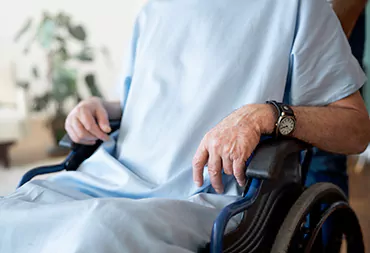24/7 Helpline: +91 9148080000
BOOK AN APPOINTMENT24/7 Helpline: +91 9148080000
BOOK AN APPOINTMENT
Parkinson’s disease is a progressive disorder that is caused by degeneration of nerve cells in the part of the brain called the substantia nigra, which controls movement. These nerve cells die or become impaired, losing the ability to produce an important chemical called dopamine. The result is tremor (trembling in the hands, arms, legs and jaw); rigidity (stiffness of the limbs); slowness of movement; and impaired balance and coordination – the hallmark symptoms of Parkinson's.
Common Symptoms
Early detection enables management of disease
It is important to diagnose the disease at its early stages itself. This enables in identification of the causes, intervention of treatment procedures to prevent fast degeneration.
The disease usually affects one side of the body and spreads over progressively. It is found mostly in people aged over 60 and is not a life-threatening disease. In cases of genetic abnormalities, there are possibilities that it can begin to impact at an early age.
BRAINS HOSPITAL has comprehensive approaches to diagnose and treat Parkinson’s Disease. The Hospital has a team of experienced physicians, specialists and surgeons to handle cases from onset to advanced Parkinson’s.
Based on the patient’s medical history, current conditions, the neurologist will perform physical and neurological examination. Health care providers may also recommend regular follow-up appointments with neurologists trained in movement disorders to evaluate the condition and symptoms over time to accurately diagnose the onset of Parkinson's disease.
The treatment might range from dopamine replacement drugs, to deep brain stimulation therapies. Other therapies include medical therapy, surgical therapy, physical therapy, dexterity therapy, gait and occupational therapy. In addition, it is recommended that the patient receives emotional support, and supportive therapy.